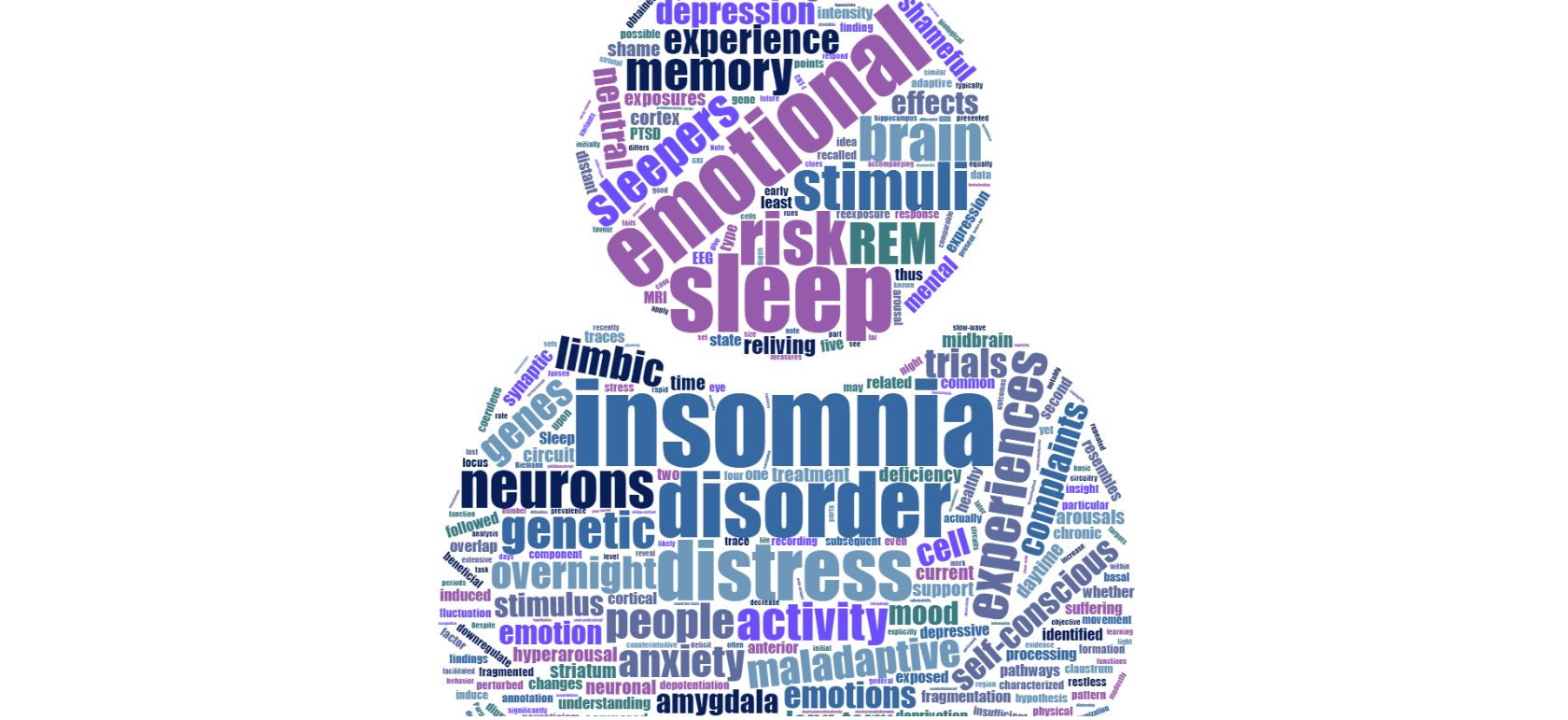
It is said that someone “suffers” from insomnia, but we do not say someone suffers from a cold, or a flue, or even cancer. New studies are showing that suffering is the correct verb to use in this context. Two studies published in 2019 found that insomnia is linked to emotional disorders. One study by (Wassing et al. 2019) found that people with insomnia have a hard time forgetting painful or shameful past experiences compared to normal sleepers who settle those emotions during sleep. By now we know that sleep helps consolidate experiences in memory, which is essential for learning new information, but sleep also helps clear away emotional distress triggered during those experiences. The study looked at MRI images of people with insomnia and found a neurobiological link between long-lasting emotional distress and hyperarousal or inability to sleep.
The second study by (Jansen et al. 2019) looked at the genes that are linked to insomnia in a large study of over one million people with insomnia from 23andMe research participants. It discovered many insomnia-risk genes which are expressed in limbic circuits and are involved in disturbed emotion processing and more specifically in depression, anxiety, attention deficit hyperactivity disorder (ADHD), and neuroticism. Among the prominent insomnia-risk genes are MEIS1, LRGUK, and BTBD9 and several genes that are expressed in the brain. MEIS1 is associated with insomnia complaints and restless legs syndrome (RLS). Although RLS is a physical disorder, a study by (Tully et al. 2019) found an association between RLS and anxiety-depression comorbidity. LRGUK was also found to be associated with type 2 diabetes and autism spectrum disorder. BTBD9 is part of a pathway that regulates circadian rhythms, it is expressed in the brain and has been associated with RLS and Tourette syndrome.
Whether insomnia has a genetic cause or an emotional cause, the evidence is clear that emotions only exacerbate the problem. People with insomnia might ask what they can do with the new information? Understanding the problem is a first step, getting a genetic analysis done can help too, and then sharing the information with their physicians about how to modify existing treatments using that knowledge. And in this case, they may be able to do so without waiting for a new drug or without drugs.
Although no new treatments for insomnia were suggested in the studies, it is clear that existing therapies may benefit from psychological therapy. The most recommended drug-free therapy for insomnia is Cognitive Behavioral Therapy (CBT-I) which started being prescribed around 2005 and involves both talk-therapy and sleep restriction. CBT-I was shown in a study by (van der Zeerde et al. 2019) to produce clinically significant effects that last up to a year after therapy. Sleep restriction, however, can be torturous for an insomniac who craves nothing else but sleep. Although talk therapy is an easy task, it currently involves conversations around sleeping experiences, and usually does not cover personal emotions from the past or present. An obvious conclusion from the recent studies is that a person with insomnia disorder may benefit from regular talk-therapy with a psychologist to help process the emotions that could not be processed at night. Another conclusion is that drugs to treat depression may also work for insomnia, however, those drugs have severe side-effects. The scientific literature has reported very few side-effects for talk-therapy, but the efficacy of the therapy may depend on the choice of therapist. Finally, mindfulness stress reduction and meditation (Ong and Moore 2019) have been shown to alleviate insomnia symptoms, but some of the mindfulness steps that involve observing and labelling one’s emotions without judgment, might be difficult for people who have unlearned how to process emotional distress. In this case, a combination of psychological talk-therapy and mindfulness practices might lead to faster healing than mindfulness alone.
